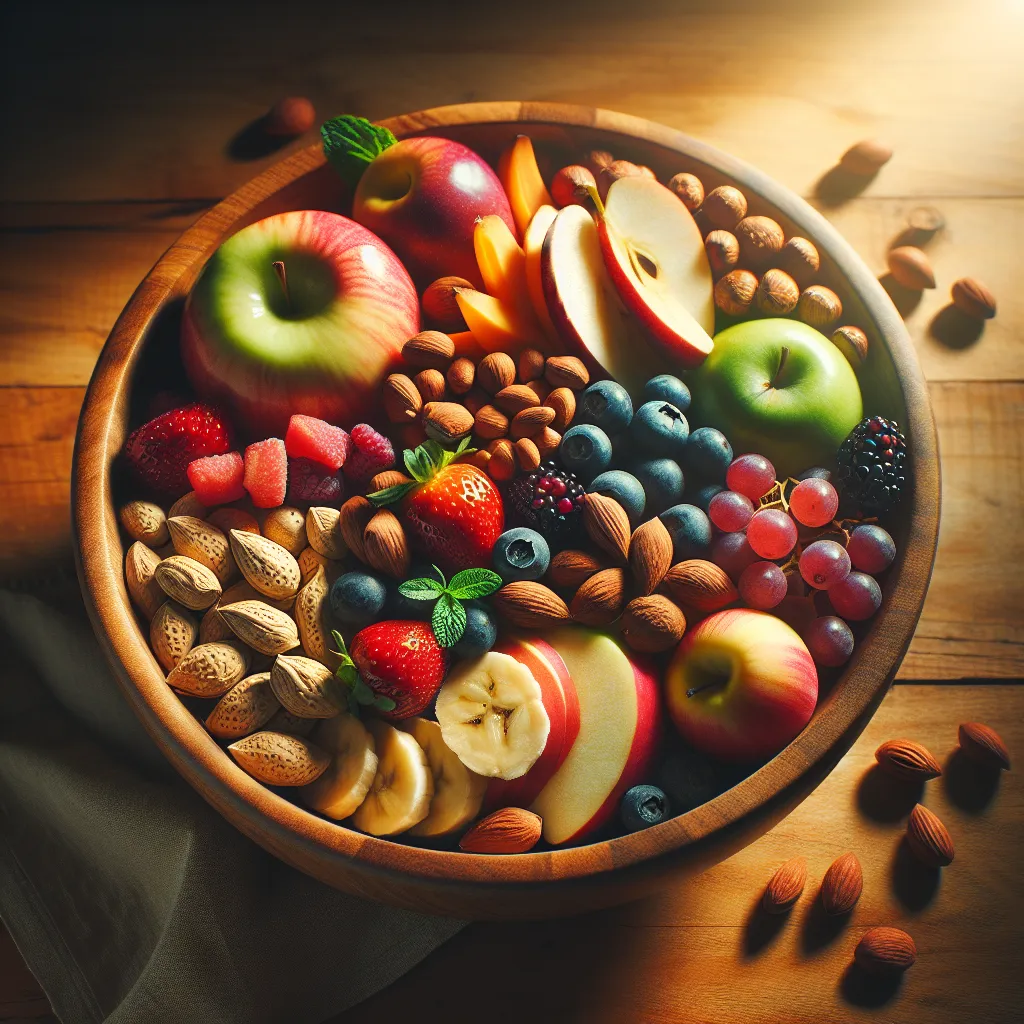The Role of Snacking in Daily Nutrition
Snacking plays a crucial role in daily nutrition by providing an opportunity to incorporate essential nutrients and maintain energy levels throughout the day. When chosen wisely, snacks can contribute to a well-balanced diet, offering a convenient way to bridge the gap between meals and prevent overeating during main meals.
However, the impact of snacking on daily nutrition is heavily influenced by the choices individuals make. Opting for nutrient-dense snacks such as fruits, vegetables, nuts, or yogurt can enhance the overall nutritional intake, providing vital vitamins, minerals, and fiber. On the other hand, indulging in high-sugar, high-fat snacks can lead to an excessive calorie intake with little nutritional benefit, potentially disrupting the balance of one’s diet.
Moreover, strategic snacking can aid in better portion control during regular meals, preventing the tendency to overeat due to excessive hunger. By incorporating healthy snacks, individuals can manage hunger levels, stabilize blood sugar, and improve overall food choices throughout the day.
Overall, the role of snacking in daily nutrition is significant, offering a practical means to support a well-rounded and nutrient-rich diet. Making mindful choices and incorporating healthy snacks can contribute to improved overall nutrition and well-being.
Balancing Nutritional Intake with Snacking Habits
When it comes to maintaining a balanced nutritional intake, the role of snacking habits cannot be overlooked. Snacking, if done mindfully, can be an integral part of a healthy diet. However, it is essential to pay attention to the quality and quantity of snacks consumed to ensure they contribute positively to overall nutrition. Incorporating nutrient-dense snacks such as fruits, vegetables, nuts, and yogurt can supplement the daily diet with essential vitamins, minerals, and fiber.
On the other hand, mindless munching on high-calorie, low-nutrient snacks can lead to an imbalance in daily nutritional intake, potentially causing issues such as weight gain and deficiencies. It is crucial to strike a balance between indulging in occasional treats and making nutritious choices when it comes to snacking. One effective approach is to plan and prepare snacks in advance, making it easier to opt for healthier options when hunger strikes between meals.
By being mindful of snacking habits and choosing nutrient-rich options, individuals can ensure that their overall nutritional intake remains balanced. Understanding the impact of snacking on daily nutrition empowers individuals to make informed choices and cultivate a healthy relationship with food.
Health Implications of Frequent Snacking
Snacking has become a common practice in today’s fast-paced world, but its impact on daily nutrition and overall health is often overlooked. While occasional snacking can fit into a balanced diet, frequent snacking can lead to several health implications. One of the key concerns is the potential for excessive calorie consumption, as snacks are often high in added sugars, unhealthy fats, and salt. These unhealthy snack choices can contribute to weight gain and an increased risk of chronic conditions such as obesity, type 2 diabetes, and heart disease.
In addition to the risk of excessive calorie intake, frequent snacking can also lead to poor oral health. Snacking on sugary or starchy foods throughout the day can increase the risk of tooth decay and gum disease. Furthermore, constant exposure to acidic and sugary foods can erode tooth enamel, leading to dental problems in the long run.
Another health implication of frequent snacking is its potential to disrupt blood sugar levels. Consuming high-sugar snacks can cause rapid spikes and crashes in blood sugar, leading to feelings of fatigue, irritability, and cravings for more unhealthy snacks. This can be particularly concerning for individuals with diabetes or insulin resistance.
It’s important to note that not all snacks have negative health implications. Healthy snacking options such as fruits, vegetables, nuts, and yogurt can provide essential nutrients and contribute to a balanced diet. However, the key lies in moderation and mindful choices. By being aware of the health implications of frequent snacking and opting for nutritious options, individuals can maintain a healthy diet and reduce the negative impact of snacking on their overall well-being.
Maximizing Nutritional Benefit through Smart Snack Choices
Snacking has become a common part of our daily routine, but it can have a significant impact on our overall nutrition. Making smart snack choices is crucial for maximizing the nutritional benefits of snacking. When it comes to selecting snacks, opting for nutrient-dense options is key. Nutrient-dense snacks are those that provide a high amount of nutrients relative to their calorie content, making them an ideal choice for maintaining a balanced diet.
Fruits and vegetables are excellent options for smart snacking, as they are packed with essential vitamins, minerals, and dietary fiber. Incorporating a variety of colorful fruits and vegetables into snacks can ensure a diverse range of nutrients. Additionally, pairing them with sources of protein or healthy fats, such as Greek yogurt or nut butter, can further enhance the nutritional value of the snack.
Whole grains are another valuable component of smart snacking. Choosing whole grain snacks like air-popped popcorn, whole grain crackers, or rice cakes can provide a healthy dose of fiber, which supports digestive health and helps keep us feeling full and satisfied until the next meal. Furthermore, including sources of lean protein, such as edamame or turkey slices, in snack choices can contribute to a feeling of fullness and support muscle health.
On the other hand, it’s essential to be mindful of snacks high in added sugars, unhealthy fats, and excessive sodium. These types of snacks may provide empty calories and lead to energy crashes. Opting for whole, minimally processed foods over highly processed snack items is generally a more nutritious choice.
In conclusion, the impact of snacking on daily nutrition can be maximized by making smart snack choices. Prioritizing nutrient-dense options such as fruits, vegetables, whole grains, and lean proteins can contribute to a well-rounded and nourishing diet. By being mindful of our snacking habits and making informed choices, we can ensure that snacking complements our overall nutrition and health goals.



